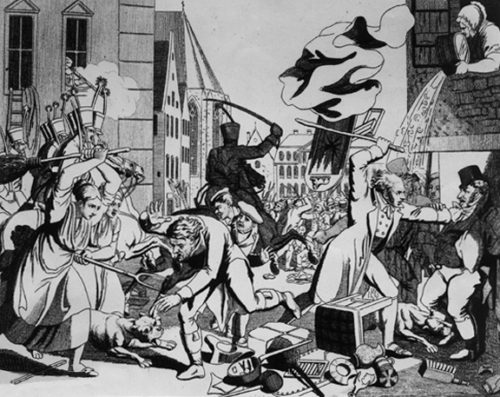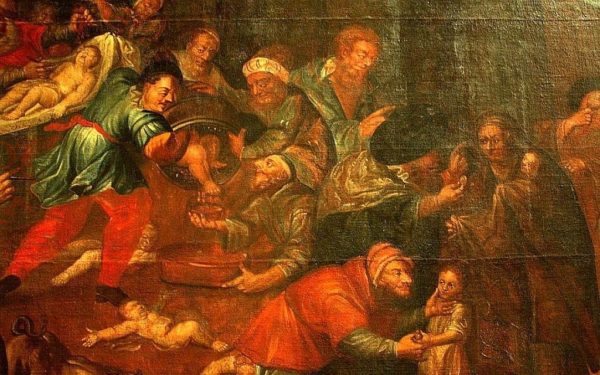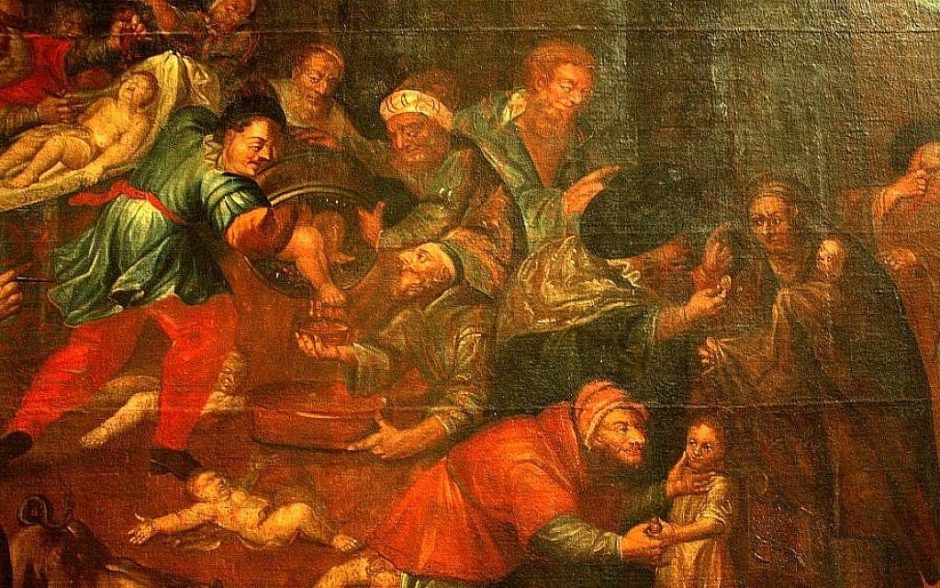It’s no secret that Christianity has promoted and perpetuated hostility toward Jews over the centuries, thereby entrenching the pathological virus of antisemitism in Western culture. Church edicts and teachings have inflamed opinion against Jews, resulting in the demonization and persecution of Jewish communities throughout Europe. Pogroms have been an integral element in this process of marginalization, and the Holocaust was the unimaginable culmination of this ancient hatred.
The Church of England contributed to this juggernaut of anti-Jewish animosity, but on November 22, it finally acknowledged its role in the creation and dissemination of antisemitism. It did this by releasing a historic 105-page report — God’s Unfailing Word: Theological and Practical Perspectives on Christian-Jewish Relations — that courageously and forthrightly examines the origins and consequences of its posture toward Jews.
In all probability, it is the most important document sanctioned by a Christian denomination since the release of the 1965 Second Vatican Council report, Nostra Aetate, (In Our Time), which revolutionized the Catholic Church’s approach to Jews and Judaism after some 2,000 years of sorrow and anguish.

A path-breaking document supported by Pope John XXIII, Nostra Aetate repudiated the accusation of “deicide” against Jews, emphasized the religious bond of Jews and Catholics, reaffirmed the covenant between Jews and God, rejected the age-old campaign to convert Jews to Christianity, and proposed that Catholics and Jews engage in friendly dialogue to better understand each other’s faith.
The report issued by the Church of England, headed by Queen Elizabeth II, is steeped in that spirit of reflection, repentance and good will. First and foremost, it internalizes the historic role that Christianity played in perpetuating antisemitism: “Recognition on the part of the Church that it bears a considerable measure of responsibility for the spread of antisemitism demands a response from the Church.”

In fleshing out this theme, the report says, “The centuries of Christian government in European history include a long catalogue of anti-Jewish measures, such as legal discrimination and periodic expulsion, alongside bouts of communal violence leading in some cases to the massacre of entire communities.” It adds: “Popular belief was widespread that the miserable state of the Jews, condemned to homelessness, was God’s punishment for their intransigence, rejection of Christ and responsibility for his death.”
As the American historian Michael Berenbaum writes in an essay, Christians by the fourth century tended “to regard Jews as an alien people who, because of their repudiation of Christ and his church, were condemned to perpetual migration” and subjected to restrictions “designed to segregate Jews and curtail their freedoms.” As a result, he says, Jews were increasingly thrust into the margins of European society.

Enmity toward the Jews, he points out, was expressed most acutely in the church’s teaching of contempt. “From St. Augustine in the fourth century to Martin Luther in the sixteenth century, some of the most persuasive Christian theologians excoriated the Jews as rebels against God and murderers of the Lord. They were described as companions of the Devil and a race of vipers. Church liturgy, particularly the scriptural readings for the Good Friday commemoration of the Crucifixion, contributed to this enmity.”

The report admits that British Christians are to blame for some anti-Jewish prejudices, citing the “blood libel” accusation that originally appeared in the cathedrals of Lincoln and Norwich in the twelfth century. The horrific myth that Jews used the blood of murdered Christian children to make Passover matzoh spread to the European continent and caused the deaths of an untold number of Jews.

Britain, too, created a precedent with the expulsion of the entire Jewish community in 1290, the report says. The objective of “seeking to be a Christian territory with no Jewish presence” was emulated by a succession of European countries from Spain to France.
Building on this narrative, the Church of England report concedes that “the persecution and prejudice experienced by Jewish people through history,” and “the responsibility held by Christians for that,” provided a “fertile seed-bed for murderous antisemitism in the modern era. Within living memory, such ideas contributed to fostering the passive acquiescence, if not the positive support, of many Christians in actions that led to the Holocaust” and the deaths of six million Jews by mass shootings, countless executions and gassings in extermination camps like Treblinka and Auschwitz-Birkenau.

The report also says that hymns and liturgical works that might “convey the teaching of contempt” towards Jews should be discarded.
In an afterword, the chief rabbi of Britain, Ephraim Mirvis, addresses the issue of conversion. He expresses “substantial misgiving” at the church’s unwillingness to condemn the “efforts of those Christians … who, as part of their faithful mission, dedicate themselves to the purposeful and specific targeting of Jews for conversion to Christianity.”
Mirvis points out that while the Vatican has pledged to drop its “institutional mission work directed towards Jews,” the Church of England report promises no such commitment and instead urges Christians to “think carefully about mission and evangelism in the case of their Jewish neighbors.”

Mirvis expresses concern that even now, in the twenty-first century, “Jews are seen by some as quarry to be pursued and converted.”
The report adopts a balanced approach to the Arab-Israeli conflict.
“While Christians will take different approaches to a number of contemporary questions regarding the State of Israel, all should accept that (a) most Jews consider Zionism an important and legitimate aspect of Jewish identity, (b) the State of Israel has a right to a secure existence within recognized and secure borders according to the common principles of international law, (c) the principles of international law also guarantee the rights and security of the Palestinian people, (d) the current apparent impasse presents grave moral difficulties and is ultimately untenable.”
It’s clear that the Church of England, having examined its generally dismal record in dealing with Jews, has repented and tried to make amends for its past behavior.
